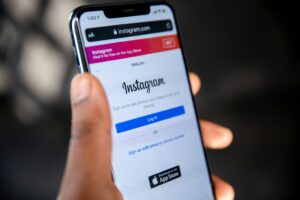Apple recently issued a security warning about iPhone users in 92 countries, including India, being targeted by “mercenary spyware attacks.” These attacks are usually targeted at high-profile individuals such as journalists and politicians, so if you receive an alert, it is important to take it seriously.
Here are some key things to know about the warnings:
- Target: Apple says the attacks target specific users, and are likely related to your profession or activities.
- Spyware: The exact nature of the spyware is not known, but it is believed to be sophisticated and designed to gain remote access to iPhones.
- Apple’s action: Apple has not disclosed the attackers, but they have assured users that they are taking steps to protect them. This potentially includes fixing vulnerabilities and working to identify attackers.

Here are some steps you can take to protect yourself:
- Update your iPhone: Make sure your iPhone is running the latest version of iOS, which will include the latest security patches.
- Enable two-factor authentication: This adds an extra layer of security to your Apple ID, making it more difficult for attackers to gain access.
- Be cautious about what links you click on and what attachments you open in emails. Spyware can sometimes be installed through phishing attacks.
If you are concerned that your iPhone may be infected with spyware, you can contact Apple Support for further guidance.
Mercenary Spyware: This term refers to spyware that is not mass-produced malware, but rather highly targeted and expensive tools developed by private companies. They are often used for government surveillance or espionage. Apple’s mention of “spyware for hire” suggests a serious and well-funded attack.
Similarities to Pegasus: Apple referenced the infamous Pegasus spyware in its notification. Developed by NSO Group, Pegasus infected iPhones without the user’s knowledge and was used to target activists, journalists and others. Apple sued NSO Group over Pegasus in 2021. This suggests that current attacks may be similar in nature.
Widespread problem: While the number of targeted users is likely small, the fact that Apple issued warnings across 92 countries highlights the global scale of this issue.

Why Apple Issues Regulator iPhone Updates
Security: This is a major focus, especially after vulnerabilities are discovered. Recent warnings about spyware attacks are a good example of this. Apple releases updates to fix these holes and make it harder for attackers to exploit them.
Bug Fixes and Improvements: Updates often fix bugs users encounter and introduce new features or improvements to the iOS system. For instance, an update might fix an issue with the camera app or improve battery life.
What to Do:
- If you haven’t received a warning: Most iPhone users are unlikely to be targeted. However, it’s still good practice to follow these steps:
- Update your iPhone: Ensure you have the latest iOS version with the newest security patches. Go to Settings > General > Software Update.
- Enable two-factor authentication: This adds an extra layer of security to your Apple ID. Go to Settings > Apple ID > Password & Security.
- Be cautious online: Don’t click suspicious links or attachments in emails.
- If you received a warning: Take it seriously. Here’s what Apple suggests:
- Contact Apple Support: They can offer further guidance and determine if additional steps are needed.
- Consider contacting Amnesty International’s Security Lab: They offer digital forensics assistance to targeted individuals (journalists, activists, etc.).
Additional Information:
- Don’t panic: Mercenary spyware attacks are rare and target specific individuals. By following the above steps, you significantly reduce the risk.
- More on Mercenary Spyware: These are expensive, custom-made tools developed by private companies for targeted surveillance. They’re different from mass-produced malware.
- Similarities to Pegasus: The warnings mention similarities to the infamous Pegasus spyware used for government surveillance.








Be First to Comment